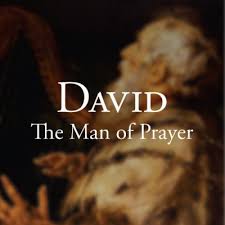David’s Prayer
First Chronicles 29:10-20
David’s prayer DIG: As David neared the end of his life, what three things are uppermost in his mind? What fears lurk behind those priorities? What is David’s view of how a nation prospers? Who actually leads a nation? What seems to be his formula for “life, liberty and the pursuit of happiness?” How did David view YHVH: Privately, as his own savior? Corporately, as Isra’el’s deliverer and provider? Cosmically, as LORD of the universe? Or something else? By what gesture, rare today, did the people respond to his prayer?
REFLECT: What can we learn about God and life from David’s prayer? What aspects of this prayer are useful to believers today? What parts seem outdated, like bowing low and falling prostrate? Paraphrase this prayer your own language and concerns. How closely does David’s prayer follow the script you might use at the end of your life? Would you say it any differently? In what is your hope?
970 BC
David had summoned all the officials of Isra’el to assemble at Jerusalem. Then David reviewed the history of his own attempts to build the Temple (First Chronicles 28:1-8), gave Solomon charge to build the Temple (First Chronicles 28:9-21), described his providing the finances to build the Temple and encouraged the people to also give liberally (First Chronicles 29:1-9), and then, after the almost spontaneous reaction of generosity by the people, David turned to God in prayer.

David praised the LORD in the presence of the whole assembly, saying: Praise be to You, ADONAI, the God of our father Isra’el, from everlasting to everlasting. David spoke of God’s attributes: Yours, YHVH, is the greatness and the power and the glory and the majesty and the splendor, for everything in heaven and earth is Yours. Yours, LORD, is the kingdom. This verse supplies the conclusion to the Lord’s prayer (see the commentary on The Life of Christ, to see link click Dp – When You Pray, Go Into Your Room and Close the Door). The stress on God’s reign in the precise context of David’s transfer of the kingdom to Solomon is significant. This was the right time to affirm that sovereignty is God’s, while the human king was His chosen regent.543 You are exalted as head over all. Wealth and honor come from You; You are the ruler of all things. Then David acknowledged Him as the One able to provide for the needs of the people. In Your hands are strength and power to exalt and give strength to all. Now, our God, we give You thanks, and praise Your glorious name (1 Chron. 29:10-13). These verses have been incorporated in the morning service of the Jewish liturgy.
In contrast to the eternal God, David declared that he – the king – was just like any other human, an alien and a stranger on the earth. But who am I, and who are my people, that we should be able to give as generously as this? Then David confessed that even the gifts that had just been given were possible only because the LORD was the original giver (James 1:17). Everything comes from You, and we have given You only what comes from Your hand. This is the foundation of the doctrine of stewardship: since our property is His (Psalm 24:1), and since we only hold it temporarily in trust (First Chronicles 29:15-16), it should be therefore used for Him (Luke 17:10).544 We are foreigners and strangers in Your sight, as were all our ancestors (First Chronicles 29:14-15a). As aliens are dependent upon the goodwill of the ruler of the land in which they live temporarily, so the people of Isra’el must rely upon God’s bounty and protection. Such a close relationship of God and king in the act of worship is not found elsewhere in the Bible.
Our days on earth are like a shadow, without hope without You. God is eternal, but human life is brief and nobody can prevent the inevitable hour of death (here David sounds like Moshe in Psalm 90). Since all things come from ADONAI, and life is brief, the wisest thing we can do is give back to YHVH what He gives to us and make an investment in the eternal.545 LORD our God, all this abundance that we have provided for building You a Temple for Your Holy Name comes from Your hand and all of it belongs to You. I know, my God, that You test the heart and are pleased with integrity. All these things I have given willingly and with honest intent. And now I have seen with joy how willingly Your people who are here have given to You (First Chronicles 29:15b-17).
Finally, referring to Him as ADONAI, the God of our fathers, the One who had made a covenant in the past with the nation’s ancestors, Abraham, Isaac and Isra’el, keep these desires and thoughts in the hearts of Your people forever, David prayed that God would keep the hearts of the people loyal to You. And like any godly father, David closed his prayer by interceding for his son, “Give my son Solomon the wholehearted devotion to keep Your commands, statutes and decrees and to do everything to build the Temple for which I have provided.” The ceremony ended when David said to the whole assembly, “Praise the LORD your God.” And the people’s response is explicitly mentioned: So they all praised ADONAI, the God of their fathers. Then they bowed down, prostrating themselves before YHVH and the king (First Chronicles 29:18-20).
What Godly plans are you leaving for your children to follow? Are you praying for your family/children to be great in serving God?



Leave A Comment